You are warmly welcomed to the next research process seminar.
Visually informed, (critical) discursive psychology for analysing visual materials in online contexts
In this talk, we discuss and illustrate a methodological approach for studying the ways in which visual, online materials (e.g., Instagram posts) serve as contemporary sites for constructing and maintaining social life. Specifically, we present a visually informed approach to critical discursive psychology, offering an emergent perspective on how visual materials might be analysed to deepen our understanding of key psychological concepts. By integrating the visual into discursive psychology theory, we consider “visual discourse” and “visual interpretative repertoires” as key analytic concepts when interpreting visual, online materials. Drawing upon a study of gender performance in images posted on Instagram, we walk participants through the process of collecting visual materials, conducting analyses of visual content, and making sense of visual interpretative repertoires. In this, we discuss some of the unique challenges and opportunities that can arise when studying visual materials using this approach.
The speakers:
Jessica Nina Lester is a Professor of Qualitative Methodology at Indiana University, Bloomington, USA. She is a qualitative methodologist and interdisciplinary researcher who publishes in areas related to qualitative method/ology, with a particular focus on discourse and conversation analysis methods, digital tools/spaces in qualitative research, and disability in critical qualitative inquiry. Most recently, she co-authored the book, Doing Qualitative Research in a Digital World (Sage, 2022), and co-edited the volume, Centering Diverse Bodyminds in Critical Qualitative Inquiry (Routledge, 2021).
Dr. Keiko M. McCullough is an assistant professor of Counseling Psychology in the Morgridge College of Education at the University of Denver. Dr. McCullough publishes in areas related to method/ology, media studies, and psychology, with an interest in uncovering how psychological constructs are produced and maintained in media (and other visual domains) in connection to systems of inequality.
About the research process seminar series:
The purpose of this research seminar series is different to your typical research seminar and conference presentation. Instead of presenting the resultsand outcomes of research, we want to share good practices around the process of doing research. This might often involve a focus on research methods but it also includes aspects of publishing, writing, time management, career management etc.
The idea here is that the speaker takes us through the anatomy of the project or approach focussing particularly on the process – the challenges, thesuccesses, and the failures. For the audience, we walk away with a practical application of a method or approach we may not be familiar with or may not have applied in this way before. Our ambition is to make us all better researchers as a result.
10 December 2pm – 3pm on Zoom
Register in advance for the meeting:
https://bournemouth-ac-uk.zoom.us/meeting/register/tZMvcuqpqzIsE90LOUN7U1RNOi9UVYDgKMDP
And if you can’t make it but want the recording, please register.



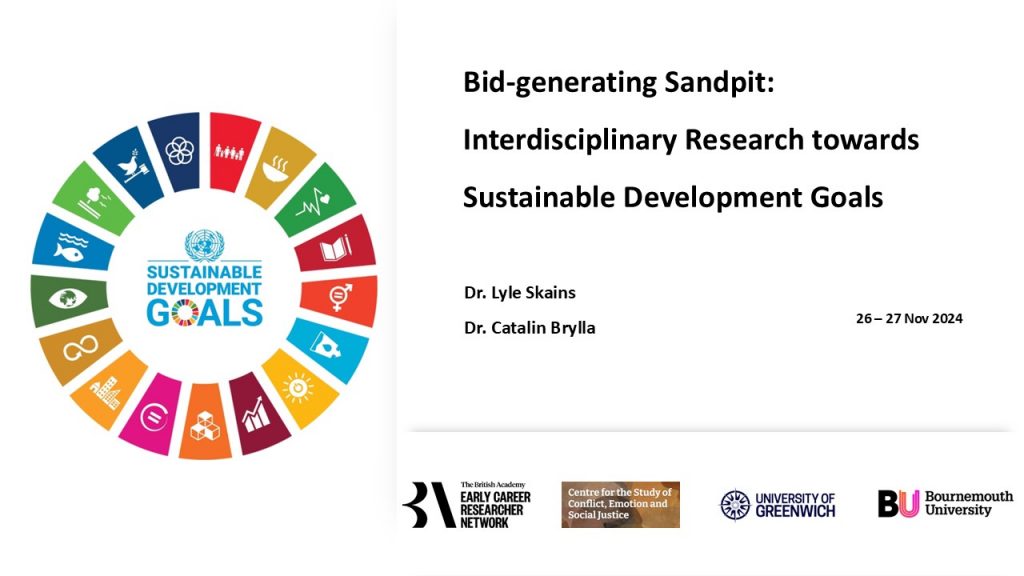 30 early career academics from ten London universities came together on the 26-27 November at Greenwich University for a two-day interdisciplinary sandpit funded by
30 early career academics from ten London universities came together on the 26-27 November at Greenwich University for a two-day interdisciplinary sandpit funded by 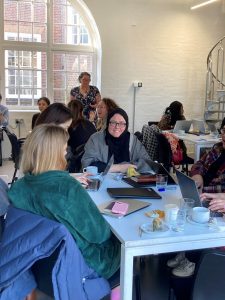 The participants specialised in a variety of disciplines such as psychology, anthropology, policy studies, performance, media, tourism, environmental sciences, architecture and law. They brought their interests in a sustainable world and society (as represented by the
The participants specialised in a variety of disciplines such as psychology, anthropology, policy studies, performance, media, tourism, environmental sciences, architecture and law. They brought their interests in a sustainable world and society (as represented by the 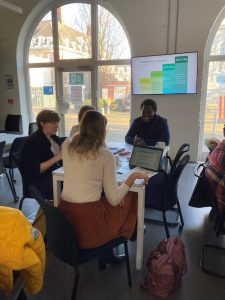 experts provided mentorship and feedback on the projects as they developed toward funding proposals. Two sandpit follow-up sessions will also aid the participants in developing their funding proposals.
experts provided mentorship and feedback on the projects as they developed toward funding proposals. Two sandpit follow-up sessions will also aid the participants in developing their funding proposals.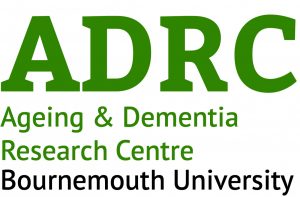


 Dr Julia Round of the Faculty of Media and Communication has been awarded a 2024 Comics Education Kinnard Award for outstanding work with comics and education.
Dr Julia Round of the Faculty of Media and Communication has been awarded a 2024 Comics Education Kinnard Award for outstanding work with comics and education. 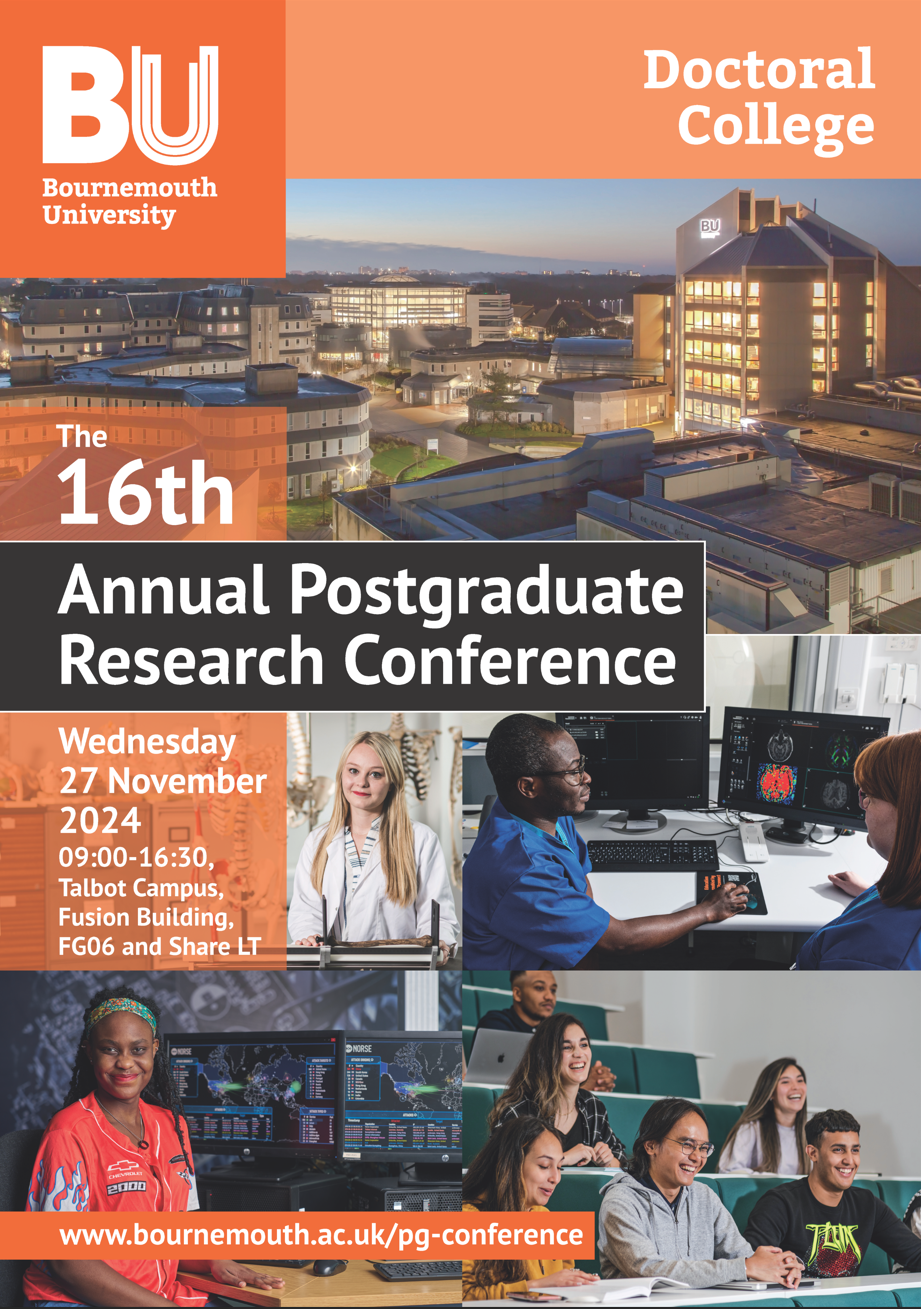
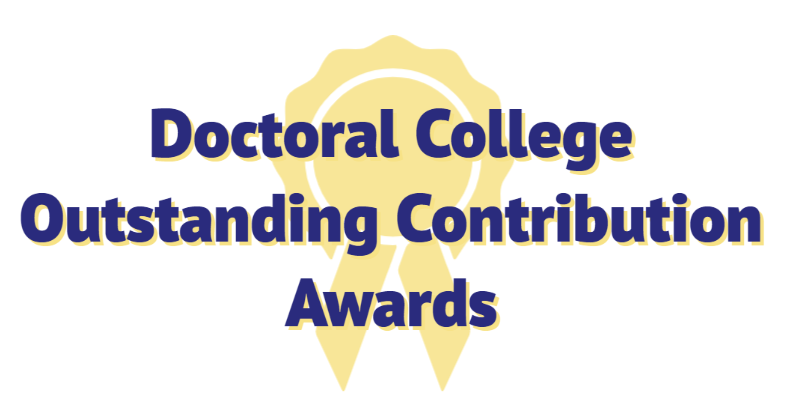

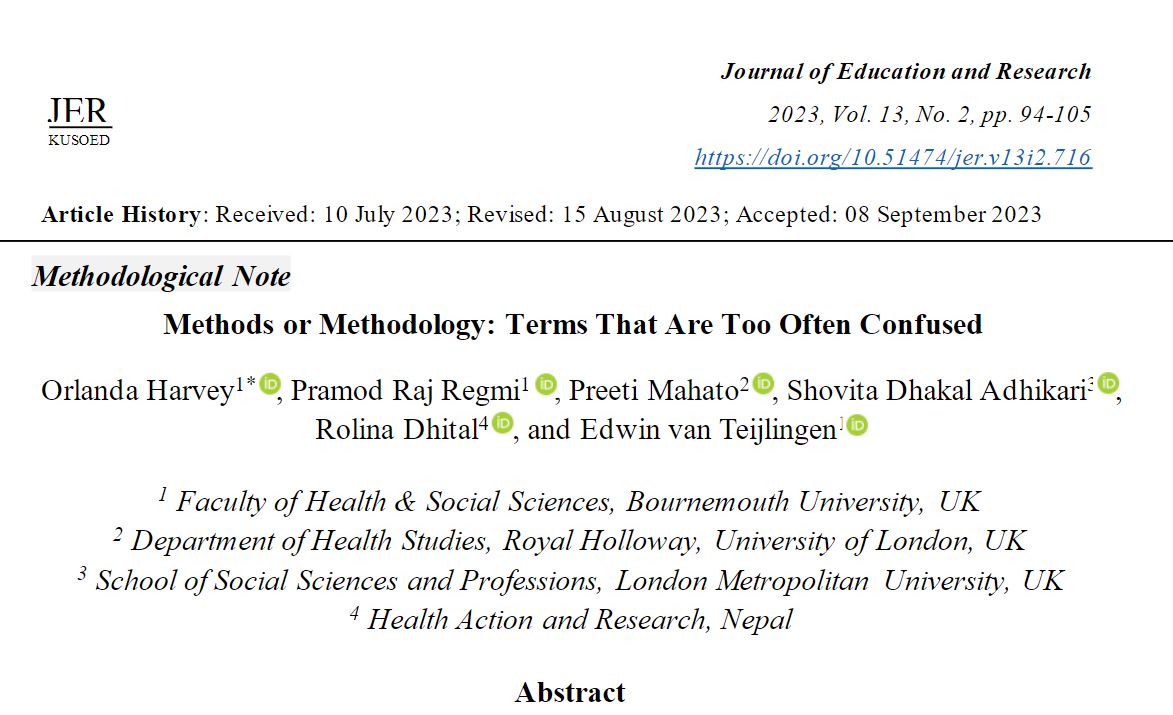











 From Sustainable Research to Sustainable Research Lives: Reflections from the SPROUT Network Event
From Sustainable Research to Sustainable Research Lives: Reflections from the SPROUT Network Event REF Code of Practice consultation is open!
REF Code of Practice consultation is open! BU Leads AI-Driven Work Package in EU Horizon SUSHEAS Project
BU Leads AI-Driven Work Package in EU Horizon SUSHEAS Project ECR Funding Open Call: Research Culture & Community Grant – Apply now
ECR Funding Open Call: Research Culture & Community Grant – Apply now ECR Funding Open Call: Research Culture & Community Grant – Application Deadline Friday 12 December
ECR Funding Open Call: Research Culture & Community Grant – Application Deadline Friday 12 December MSCA Postdoctoral Fellowships 2025 Call
MSCA Postdoctoral Fellowships 2025 Call ERC Advanced Grant 2025 Webinar
ERC Advanced Grant 2025 Webinar Update on UKRO services
Update on UKRO services European research project exploring use of ‘virtual twins’ to better manage metabolic associated fatty liver disease
European research project exploring use of ‘virtual twins’ to better manage metabolic associated fatty liver disease